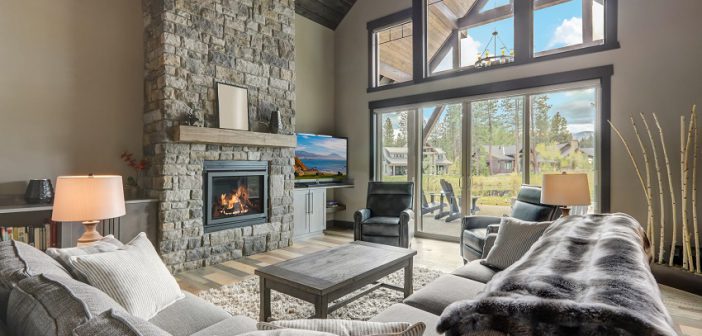Heating, Ventilation, and Air Conditioning (HVAC) systems have evolved significantly over the past few decades. Modern HVAC Charlotte, NC, systems offer enhanced functionality and improved efficiency to provide optimal indoor air quality and comfort. Whether considering an upgrade or looking to understand the latest innovations, knowing the benefits of contemporary HVAC systems is essential. HVAC systems seamlessly integrate state-of-the-art technology to enhance user experience. Not only does having an excellent and consistent interior environment increase comfort, but it also benefits general health and well-being.
Health Benefits of Optimal Indoor Air Quality
One of the primary benefits of contemporary HVAC systems is their ability to maintain excellent indoor air quality (IAQ). According to Harvard Health, poor air quality can lead to respiratory issues and exacerbate allergies. Modern systems effectively filter harmful particles, including dust, pollen, and pathogens, providing a healthier living environment. Recent studies have shown a direct correlation between air quality and health outcomes. For instance, improved IAQ can reduce the incidence of asthma attacks and other respiratory conditions. With better filtration and ventilation, these systems help homes remain free from airborne contaminants, ensuring a safer and more pleasant space for residents.
Energy Efficiency and Cost Savings
Today’s HVAC systems are designed to be more energy-efficient, translating to substantial cost savings for homeowners. Advanced technologies like variable speed motors, energy recovery ventilation (ERV), and high SEER (Seasonal Energy Efficiency Ratio) ratings reduce energy consumption without compromising comfort. These systems optimize energy use, lowering utility bills and reducing carbon footprint. Energy-efficient systems benefit the environment and allow homeowners to save hundreds of dollars annually. Tax incentives and rebates are often available for those who invest in high-efficiency HVAC systems, providing additional financial benefits.
Technological Advancements in HVAC Systems
Recent technological advancements have transformed HVAC systems, making them more sophisticated and user-friendly. Innovations like programmable thermostats and zoning systems allow for greater control and customization. Programmable thermostats, for example, let users set different temperatures for various times of the day, optimizing energy use and ensuring comfort. Zoning systems provide:
- A tailored solution.
- Allowing different areas of a home to be heated or cooled independently.
- Providing targeted comfort and efficiency.
These advancements contribute significantly to energy conservation, lowering operational costs and environmental impact. Monitoring and controlling HVAC systems remotely adds an extra layer of convenience, allowing users to adjust settings from anywhere, thereby preventing unnecessary energy consumption. Innovations in sensor technology and artificial intelligence also play a pivotal role in fine-tuning system operations, further enhancing efficiency and user comfort.
Eco-Friendly HVAC Solutions
With growing environmental concerns, the HVAC industry has shifted towards more eco-friendly solutions. Modern HVAC systems use sustainable materials and refrigerants with low Global Warming Potential (GWP). Systems are designed to be eco-friendly while maintaining high performance, making them a wise choice for environmentally conscious consumers. Utilizing systems that reduce energy consumption and employ recyclable materials contributes to environmental sustainability. Green technology advancements like geothermal heating and cooling systems provide renewable energy options that drastically lessen dependency on fossil fuels. Solar energy technology is also incorporated into many modern systems, adding another level of sustainability. These environmentally friendly methods support international efforts to mitigate climate change by lowering carbon footprints. It’s an exciting time for customers and the industry because of the potential for further reducing the environmental effect of HVAC systems as technology advances.
Maintenance Tips for Longevity and Efficiency
Regular maintenance is critical for keeping HVAC systems running efficiently and extending their lifespan. Simple steps can prevent major issues and ensure optimal performance:
- Change filters regularly to maintain good airflow and air quality.
- Schedule professional tune-ups at least once a year.
- Maintain the outside unit tidy and debris-free.
- Check and clean ducts periodically to avoid blockages and improve efficiency.
Adhering to these maintenance tips will ensure the HVAC system runs smoothly and efficiently for years. Neglecting maintenance can reduce efficiency, increase energy costs, and cause potential system failures. Homeowners who invest time in regular upkeep often find that their systems perform better, last longer, and require fewer costly repairs. Additionally, professional inspections can identify and rectify minor issues before they escalate, providing peace of mind and hassle-free operation.
Common Myths About HVAC Systems
There are many untruths about HVAC systems. One prevalent misperception is that larger systems are invariably superior. In actuality, to guarantee efficacy and efficiency, the system size should correspond with the particular requirements of the house. An excessive system installed may experience more wear and tear, frequent cycling, and decreased efficiency. Another fallacy is that energy can be saved by sealing vents in unoccupied rooms. This may result in imbalances and inefficiencies in the system, increasing stress and raising energy usage. Understanding and debunking these myths can help homeowners make informed choices about their HVAC systems. Educating oneself on the realities of HVAC operations can prevent costly mistakes and ensure a more efficient, effective climate control solution. With proper knowledge, homeowners can navigate the complexities of HVAC systems and make decisions that best suit their needs and budgets.
Incorporating Smart Home Integrations
The integration of smart home technology with HVAC systems has become increasingly popular. Smart thermostats, for instance, can be controlled remotely via smartphones, providing convenience and enhancing energy efficiency. These integrations also offer features like learning user behavior and automatically adjusting settings for optimum comfort and savings. With smart home technology, maintaining an ideal indoor environment becomes more streamlined and user-friendly. Smart thermostats can learn preferred temperature settings and suggest optimal settings based on use patterns. Integrating home automation systems enables seamless management, from scheduling temperature changes to controlling humidity and air quality. This connectivity ensures that HVAC systems operate at peak efficiency while delivering maximum comfort. As technology advances, the possibilities for smart home integrations expand, promising an increasingly connected and convenient lifestyle.




